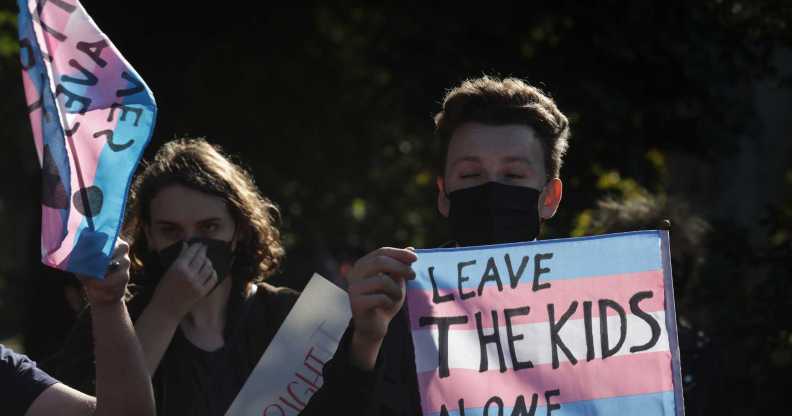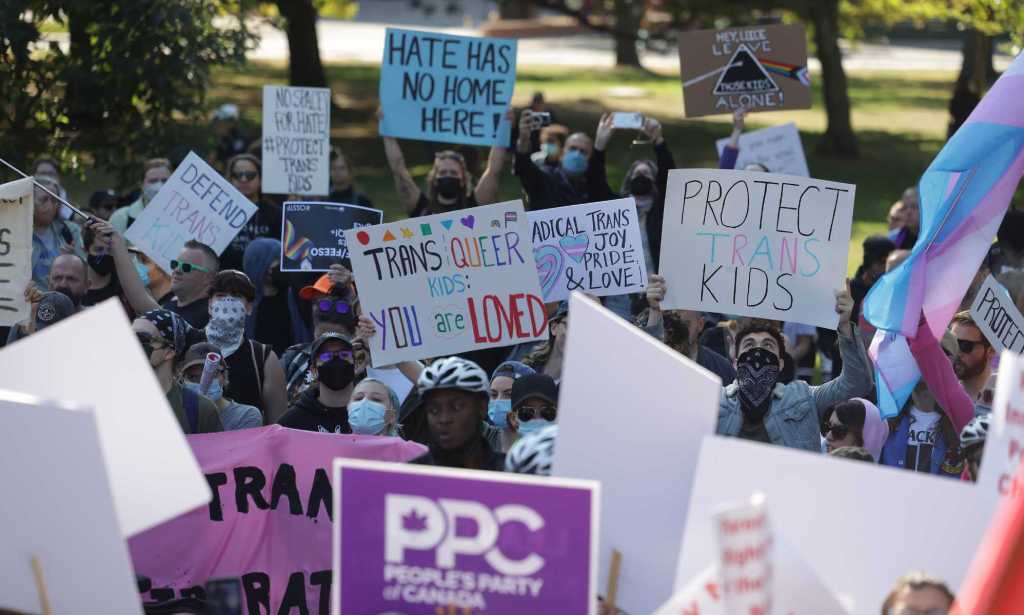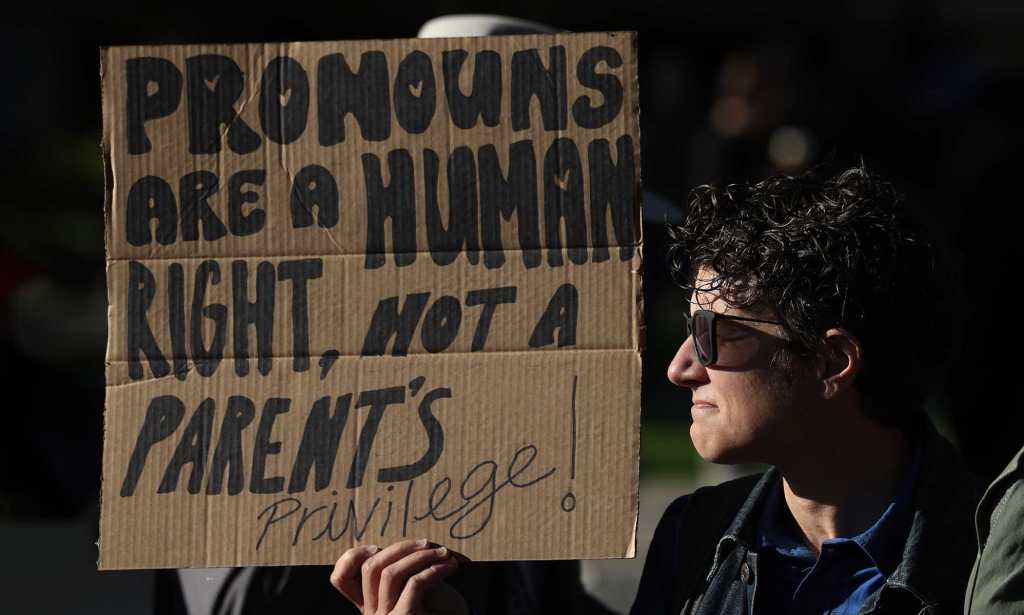Anti-trans rallies met with huge counter-protests across Canada

Protests and counter-protests have broken out across Canada. (Getty Images)
Across Canada, protests against school policies on gender identity are being met with huge counter-protests.
Anti-trans protests disrupted major cities throughout Canada on Wednesday (20 September), calling for changes to how schools teach gender identity and sexuality to children, and how schools should treat transgender students.
Protesters argue that parents should be told whether their child is socially transitioning or going by a different gender identity at school, under the guise of “parental rights”.
But just as protests began in cities across Canada, they were quickly outnumbered by counter-protesters defending the rights and safety of transgender children.
The two clashing protests have sparked bitter exchanges and resulted in two arrests in Ottawa.
The two people, who were protesting against school policies on gender identity curriculum in the Canadian capital, were arrested for “inciting hatred” and “displaying hateful material”, Ottawa police stated.

They warned: “Hate or bias-motivated crimes will be fully investigated.”
Meanwhile, in Halifax, police say that protests have led to the arrest of a 16-year-old who will appear before youth court on charges of assault with a weapon, mischief, and causing a disturbance, the Montreal Gazette reports.
Amidst the ongoing protests, Prime Minister Justin Trudeau shared his support for LGBTQ+ people across the country.
In a post to X (formerly Twitter), he wrote: “Let me make one thing very clear: Transphobia, homophobia, and biphobia have no place in this country. We strongly condemn this hate and its manifestations, and we stand united in support of 2SLGBTQI+ Canadians across the country – you are valid and you are valued.”
Meanwhile, Ottawa Mayor Mark Sutcliffe shared his own post to X in support for LGBTQ children.
“The protests taking place today will only cause harm to youth who are looking for our support and acceptance,” he wrote.
Protests against LGBTQ+ policies in schools first broke out when New Brunswick’s government altered the province’s LGBTQ+ policy so that students under the age of 16 had to get parental consent before they could socially transition at school – for example, asking teachers and classmates to refer to them by their preferred name. Shortly after the policy was introduced, the Canadian Civil Liberties Association filed a lawsuit against New Brunswick.
Despite the lawsuit, New Brunswick’s controversial policy was then adopted by the Saskatchewan government – though an injunction has been filed to stop the policy from going through.
Among anti-LGBTQ+ protesters this week was New Brunswick Premier Blaine Higgs, who told reporters that he didn’t understand why their policy was so controversial.

“I think our parents should become knowledgeable about what their kids are being taught and what is important for them to learn in schools and what’s important for parents to make decisions on with kids that are under 16 years old,” he said.
Counter-protesters have also been speaking to reporters on the street, particularly queer students – who would be directly affected by such policies.
Transgender student Alex Harris told CBC News that the growing discourse around LGBTQ+ school policies has created a dangerous environment for students.
“I have had more slurs yelled at me in the hallways since I have gone back to school this September than I ever have previously, and I have been out at school as part of the LGBTQ+ community for probably five years now,” said Harris.
He pointed out that, while his parents have been supportive of his transition, he knows other students who are scared to come out to their parents and rely on school as a safe space.
“I know students who would be at risk of physical abuse if they came out to their parents or they would be kicked out [of their home] if they came out to their parents.”
Another counter-protester, Adrienne Kulling told the Montreal Gazette that she came out to be an ally to the LGBTQ+ community on her day off work.
“I really think we were moving in a progressive direction, and then all of a sudden things started shifting,” she said.
“We need to show support for the trans and nonbinary kids. They need help because there’s suicide, depression — all these things are coming up with queer youth.”
How did this story make you feel?

